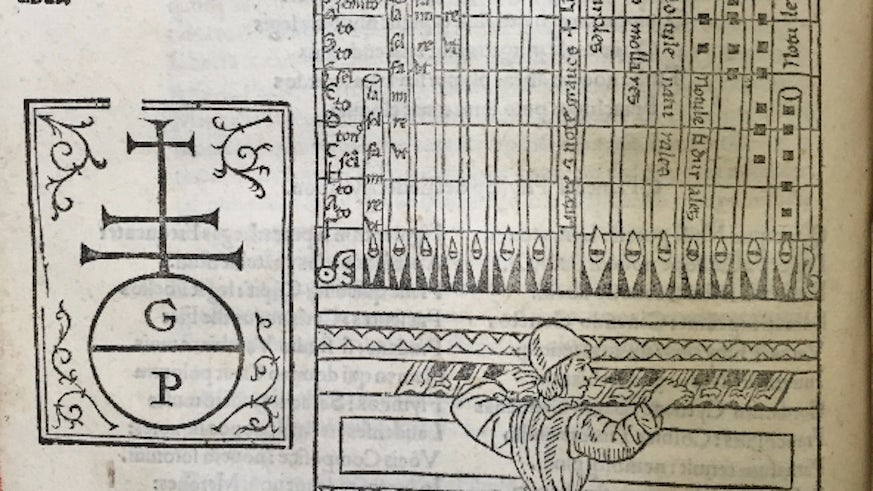Rare Renaissance musical treasures discovered
8 June 2016

Dr Peter Leech, Associate Lecturer at the School of Music, recently made an exciting discovery while researching at Ushaw College Library, near Durham.
Hunting for eighteenth-century sacred music by Italian composers (a search which also proved fruitful), Dr Leech found, tucked between weighty ecclesiastical tomes in the Lisbon College Archive, a single volume containing the first editions, bound together, of two landmark Renaissance musical treatises, De Harmonia Musicorum (Milan, 1518) by Franchinus Gaffurius (1451-1522) and Musica Theorica (Venice, 1529) by Lodovico Fogliano (c.1475-1542).
De Harmonia Musicorum
One of the most famous humanist scholar-musicians, Gaffurius was maestro di cappella at Milan Cathedral and a contemporary of Josquin. De Harmonia was the third of his Trilogia Gaffuriana, comprising a complete practical and theoretical and guide for early sixteenth-century composers.
Musica Theorica
Fogliano (c.1475-c.1542), as well as being a theorist and composer, was a singer in the Cappella Giulia, Rome and at Modena Cathedral. In Musica Theorica he argued that music was not an exclusively mathematical phenomenon, but one which partook equally of natural science. He rejected the harsh Pythagorean tuning system, instead advocating just intonation of the scale (pure octave, fourth, fifth, major third, minor third, minor sixth and major sixth), where acute aural perception yields consonances in their simplest ratios, an idea postulated many years before the writings of Gioseffo Zarlino.
Discussing his discovery, Dr Leech said: "Further research may reveal how these works found their way to Lisbon College (founded in 1624) and whether they formed part of a hitherto dispersed music collection.
"The discovery of the Gaffurius and Fogliano treatises, both seminal resources for scholars of sixteenth-century performance practice, will have a significant impact. Only five other copies of Musica Theorica are apparently known in UK research libraries (and only six copies of De Harmonia), adding Ushaw to the list of sources for these very rare items."
The archive and early printed book collections at Ushaw College are owned by the Trustees of the college, currently being managed by Durham University Library as part of an ongoing project to catalogue and make available these collections to a wider audience.


